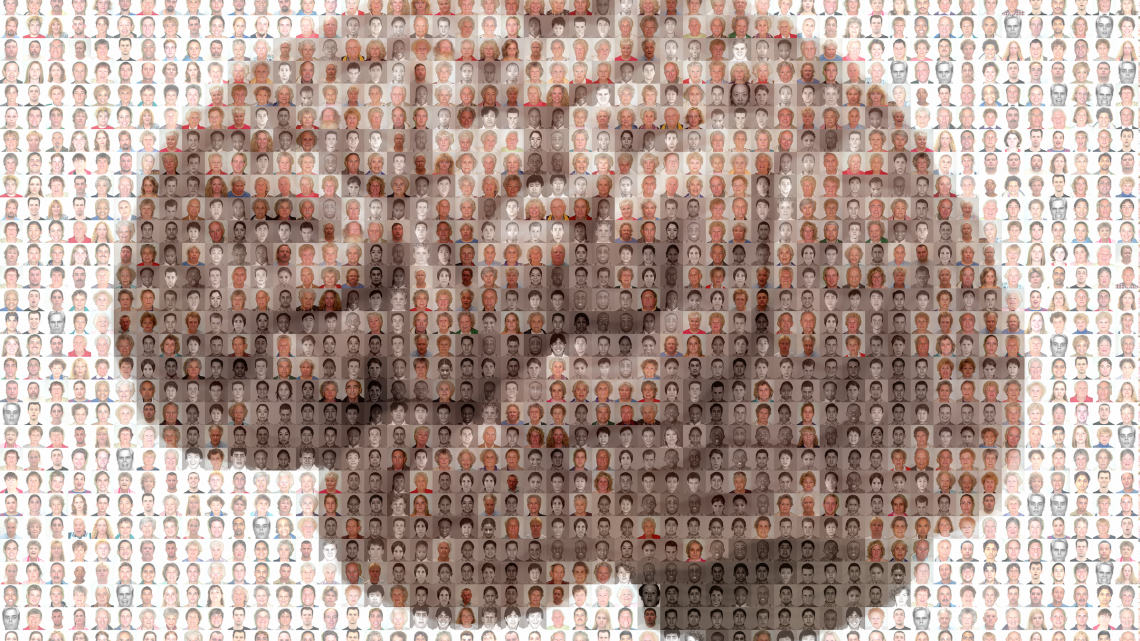
News directly from Cornell's colleges and centers
New initiative engages communities in neuroscience
By Sheri Hall
The Bronfenbrenner Center for Translational Research is launching a new project – the Community Neuroscience Initiative, or CNI – that will build connections between neuroscience, the social sciences and communities.
The project is headed up by Marlen Z. Gonzalez, assistant professor of human development, whose research focuses on how developmental context shapes the brain. “This is something I’ve been thinking about for a long time,” she said. “I believe it’s important for communities to feel a sense of ownership for the science that gets created and for neuroscience to be part of serving the community.”
The idea is to create a platform that will promote dialogue between neuroscience researchers, stakeholders and community members, Gonzalez explained.
“We really want to democratize neuroscience,” she said. “We want to understand the needs of our communities, and make neuroscience a much more collaborative and egalitarian movement. It’s really allowing us to be partners in taking care of our communities.”
CNI is truly a grass-roots initiative, explained BCTR Director Anthony Burrow.
“What is truly exciting is that this initiative is not a collection of ongoing research projects moving into the community; it is instead an initiative that requires community engagement and partnership to even begin,” he said. “Given the scope of topics these researchers and community partners can address together, the CNI is likely to become a beacon program for what translational research can offer.”
While neuroscience may not seem a likely candidate for community-oriented research, understanding the human brain is essential in creating programs and policies that truly benefit people, Gonzalez said.
“People don’t realize that neuroscience is largely a social science, very truly,” she said. “So much of the human brain is about regulating through social support. Think about what it’s like to pick up a crying baby and calm them. When you do that, you are impacting their brain, giving them cues about safety and their environment. All of our brains are affected in the same ways by our environments. We’re impacted by our families, our schools and communities and the laws in our state and country.”
CNI has already launched an outreach initiative, with seed funds from the Office of Engagement Initiatives (OEI), called “Get to Know Your Brain Days” at the Syracuse Academy of Sciences (SAS) charter school in inner-city Syracuse. Neuroscientists Adam Anderson and Eve De Rosa from the Department of Human Development pulled together teams of undergraduate students, who created neuroscience lesson plans to deliver with SAS high school students. The undergraduates and high school interns then taught monthly neuroscience lessons to SAS elementary students.
Gonzalez hopes CNI can expand the reach of this initiative to other schools. “It’s natural for kids to learn about the thing that helps them to learn,” she said. “There is this lovely way of giving kids ownership over their brains. I don’t want kids to think of neuroscience as hard, intimidating or serious. I want them to be able to try it!”
A second start-up initiative, a partnership between Gonzalez and Nutritional Sciences Assistant Professor Roger Figueroa, will look at the intersection between food security, social context and neuroscience. This project is in two parts: one funded with an Engaged Research Grant from OEI to partner with providers in Wayne County who work with recipients of SNAP, the federal program that replaced food stamps. Another grant in collaboration with Anderson and funded by the Cornell Center for Social Sciences will then look at the effect of social support and sugar intake on the brain under stress.
For now, Gonzalez explained, the initiative aims to pull together the various Cornell outreach and translational research efforts related to neuroscience. Eventually, the hope is to secure funding for broader research and outreach, she said.
For Gonzalez, the seeds for the Community Neuroscience Initiative were planted years ago during her first job as a public policy researcher. “I talked a lot with low-income families and came to realize how little of brain research actually made it back to everyday people, and how much parents and children really appreciated when I talked to them about neurodevelopment in a way that was accessible,” she said. “I felt enriched by listening to their concerns and having a relationship with them, instead of acting as a researcher and telling them what to do.”
The idea of demystifying the field of neuroscience is a primary goal for Gonzalez.
“I am a Latina immigrant from a low-income background,” she said. “I thought neuroscience ‘wasn’t for me.’ Yes, it’s hard and complicated, that’s true, and everyday people have everything they need in their brains to understand their brains. I would love for people to see neuroscience as something they can think about and understand, just like anything else. I want people to know, ‘You’re just as smart as a neuroscientist.’ It’s just a matter of access and training.”
Media Contact
Get Cornell news delivered right to your inbox.
Subscribe
